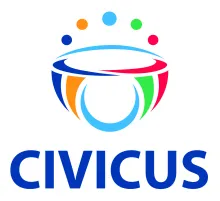The 47th Session of the United Nations Statistical Commission meeting held in New York in March 2016 was a critical milestone in defining the next steps in implementing the highly ambitious Sustainable Development Goals (SDGs) across the world. Once completed, a whopping 169 targets and 230 global indicators are expected to set milestones for implementation and monitoring progress towards the SDGs across a broad range of sectors. Even as work on the targets and indicators is finalised by the Inter-agency Expert Group on SDGs (IEAG-SDGs), implementing and realising progress on the SDGs will not be easy. Significant energy and resources will be needed at the country-level to translate them into action. They will need to be contextualised, with countries further developing additional national targets and indicators to fill any existing gaps. Citizens, in particular, must be mobilised to understand the promise of the SDGs and develop frameworks that would enable them to hold governments to account for results. Civil society, private sector, and development partners will also need to align their priorities with those of the government not only to support implementation, but also conduct independent shadow monitoring and reporting on progress – or the lack thereof.
TIME FOR RESULTS
Prior to this meeting in New York, the development world waited anxiously for the final list of targets and indicators. Focus has now shifted to the national-level, where citizens eagerly await the results from the global commitments. Unfortunately, the challenges we face today require pragmatic solutions. We can’t wait until 2025 to scramble to report on SDG progress. National Statistical Offices and other planning ministries, departments or agencies at national and sub-national levels must move quickly to define priorities that envisage citizen’s aspirations; initiating relevant policy, legal, and economic reforms (while the political will lasts) in order to entrench the SDGs in formal government processes. It’s also time to reach out to other arms of government and entities that hitherto have not been sufficiently engaged. These include parliaments, local authorities, sub-national governments, national audit offices, and judiciaries. These institutions will play a critical role in mobilising resources, implementing, and exercising oversight over the SDGs promises. In Africa, however, we recognise the need for significant investment into major reforms to restore credibility and strengthen the capacity of these institutions to play their rightful role.
DOORS PARTIALLY OPEN
At the global level, the doors for the NGO Major Groups and other Stakeholders (MGoS) to engage have been partially opened, but we are still struggling with bureaucratic systems of global inter-governmental bodies stuck in the old way of doing things. As a result, meaningful engagement remains elusive. We in civil society still have to anxiously wait for drafts from closed door negotiations; speculating, and chasing delegates and country missions in corridors to listen to and accommodate our views. We can do better:
- Reforms are needed at every level to create genuine frameworks for more structured and predictable engagement.
- We must also create safe spaces for candid engagement with governments that builds trust for longerterm mutual collaboration.
- At the same time, civil society has to work harder at the national level to strategically engage and target decision makers and missions before they arrive at major international conferences and forums.
- The existing space must be defended at all costs, while going back to the basics to draw legitimacy from the millions of ordinary citizens across the world.
ROLE OF PARTNERSHIPS
Realising impact from the SDGs will be difficult in the absence of good quality, timely, accurate, highly disaggregated and useable data. Citizens will need data converted into useable and contextualised information, presented in languages they can best understand and use. Partnerships will be critical to ensure a fully functional ecosystem of data users and producers at the community, sub-national, national, regional, and global levels. To address this need, the Global Partnership for Sustainable Development Data (GPSDD) has been formed to support multi-stakeholder data initiatives to harness the power of data for achieving the SDGs. The GPSDD is catalysing action for mutually benefitting collaboration among diverse stakeholders. Ask me about any other open initiative seizing the moment and openly reaching out to multiple stakeholders across the globe in an atmosphere devoid of bureaucracy to harness the “data revolution” and I will point to none. Well-meaning partners and critics with innovative ideas need to join others to share their perspectives and collectively catalyse actions that will deliver results. Similar partnerships must emerge at the national-level to make it all possible.
SHRINKING CIVIC SPACE
The rapidly shrinking space for civil society and other development actors to operate should worry us all. Disguised in narratives on transparency, accountability and openness are numerous incidences of narrowed civic space and widely documented impunity with which civic actors and human rights defenders are crushed by their own governments. How do these same governments deliver on their promises of sustainable development if they trample on the rights of those who entrust them with power and resources? At CIVICUS we continue to strongly advocate for improved civic space and the strengthening of civil society for citizen action. If governments are to hold their SDG promise to “leave no-one behind” they must create an enabling environment for citizens to prosper and contribute meaningfully to governance and development processes in the post-2015 era.
Through DataShift we continue to work across regions with multiple stakeholders to contextualise the Global Goals through direct support, improving the credibility and coverage of citizen-generated data, and drawing on multiple sources of data to monitor implementation and progress on SDGs; while creating replicable models, facilitating engagements, and sharing learning. We currently have a special focus on collaboration at the sub-national level in our pilot countries (Kenya, Tanzania, Nepal, and Argentina), and through partnerships support other initiatives across the world.
We invite you to subscribe to our DataShift newsletter so that we can update you on our efforts, learnings, and opportunities to share and learn from our DataShift community!
SOURCE: HTTP://CIVICUS.ORG/THEDATASHIFT/FRONTPAGE-ARTICLE/DELIV
